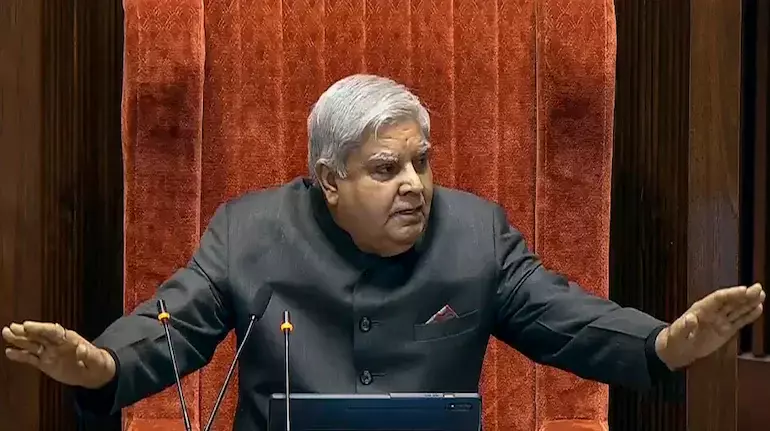
Constitutional Institutions Must Function Within Their Domains: VP
In a recent statement, Vice President Jagdeep Dhankhar stressed the importance of constitutional institutions respecting each other’s domains to ensure a thriving democracy. He emphasized that conflicts among these institutions do not foster a healthy democratic environment, and instead, hinder the functioning of the country.
Dhankhar’s remarks come at a time when tensions have been rising between the executive, legislative, and judicial branches of the government. The Vice President’s statement serves as a timely reminder of the need for these institutions to work together and respect each other’s roles in the democratic process.
In his statement, Dhankhar emphasized that it is the duty of all constitutional institutions to respect each other. He explained that this respect can only be achieved when each institution functions within its respective domain. This means that each branch of government should focus on its specific responsibilities and avoid encroaching on the powers of other branches.
Dhankhar’s comments are particularly relevant in the context of the recent conflicts between the executive and the judiciary. In recent months, there have been several instances where the judiciary has passed orders that have been perceived as infringing on the powers of the executive. Similarly, the executive has also been criticized for attempting to influence the judiciary through various means.
The Vice President’s statement is a timely reminder that the executive, legislative, and judicial branches of the government are all crucial to the functioning of a democratic system. Each branch has a unique role to play, and it is essential that they work together to ensure the smooth functioning of the country.
In recent months, the relationship between the executive and the judiciary has been strained. There have been several instances where the judiciary has passed orders that have been perceived as infringing on the powers of the executive. Similarly, the executive has also been criticized for attempting to influence the judiciary through various means.
One of the most significant examples of the tensions between the executive and the judiciary is the recent controversy surrounding the Supreme Court’s decision to appoint a former judge as the head of a commission to probe allegations of corruption against the government. The decision was widely criticized by the government and its supporters, who argued that the court had overstepped its constitutional boundaries.
The controversy was further fueled by the Supreme Court’s decision to issue a notice to the government, asking it to explain why it should not be hauled up for contempt of court. The notice was seen as an attempt by the court to assert its authority over the executive, and it led to a war of words between the two branches of government.
The tensions between the executive and the judiciary are not limited to this one incident. There have been several other instances where the two branches have clashed, often with the executive accusing the judiciary of overstepping its constitutional boundaries.
For example, in 2020, the Supreme Court passed an order directing the government to provide relief to farmers who were protesting against the Centre’s agricultural laws. The order was widely seen as an attempt by the court to interfere in the functioning of the executive, and it led to a significant backlash from the government and its supporters.
The tensions between the executive and the judiciary have far-reaching implications for the country. A healthy and functioning democracy requires a strong and independent judiciary, but it also requires a government that is accountable to the people. When the executive and the judiciary clash, it can lead to a breakdown in the functioning of the democratic system.
In conclusion, Vice President Jagdeep Dhankhar’s statement emphasizing the need for constitutional institutions to function within their domains is a timely reminder of the importance of respecting each other’s roles in the democratic process. The executive, legislative, and judicial branches of the government all have unique roles to play, and it is essential that they work together to ensure the smooth functioning of the country.
It is only when these institutions respect each other’s domains that we can ensure a thriving democracy. As Dhankhar said, “It’s our duty that all constitutional institutions respect each other and such respect is only possible when institutions function within their respective domains.”






